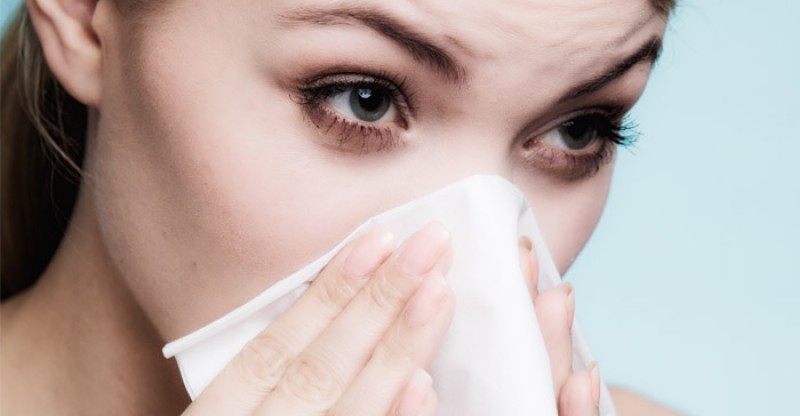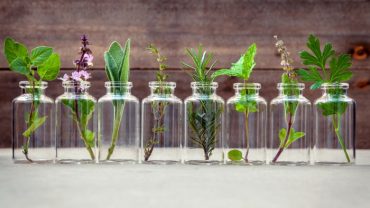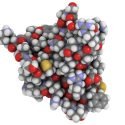9 Natural Home Remedies for Sinus Infection
Sinus infections are one of the most common (and least pleasant) medical problems in the developed world.
Fortunately, there are plenty of relevant remedies that you can use at home.
Rather than relying on a single home remedy, it’s usually best to use several treatments together.
Then you’ll combine treatments for the symptoms, find preventative measures, and get the best results.
Deal with the Symptoms
The first step in the healing process is treating the symptoms of the infection.
This step may not solve the problem on its own, but it will make your life a lot more pleasant while your immune system gets to work.
There are a lot of different techniques that you can use to help treat symptoms, but none of them will work on everything.
Instead, you should rely on a mixture of methods to treat them.
Inhaling Steam
Of all the home remedies for sinus infections, this one is the easiest.
Steam can help break up the clots of mucus that cause congestion.
Adding a couple drops of peppermint oil to a bowl of hot water will create a pleasant source of steam — as long as the water stays hot.
Drinking hot tea or soup will also help, and it’s a very convenient option for people who are stuck at work.
Finally, a hot shower can saturate the sinuses with steam, which is great for purging bad cases of congestion.
For best results, follow the shower with other sources of steam to stop the clogs from reforming.
Hydration
Water is the most basic of the natural remedies for sinus infections.
It’s good for general health, since many people are slightly dehydrated.
But it’s particularly useful when fighting a sinus infection.
Proper hydration will thin your mucus, which makes it drain relatively quickly.
In contrast, dehydrated people have thicker mucus, which tends to stay in place.
It’s also important to avoid things that can make you even more dehydrated than normal.
Alcohol and caffeine are the most common problems, since both of them increase your need for water.
When you have a sinus infection, cut back on them or eliminate them entirely.
If you have trouble doing so, be sure to increase your water intake to compensate.
Sugary drinks can also cause problems.
And since many of them include caffeine, they tend to be the most harmful drinks.
Smoking is the most important non-dietary cause of dehydration.
It can also aggravate the respiratory system, so be sure to avoid smoke as much as possible.
Rinsing
Hydration isn’t the only way that water can contribute to treating a sinus infection.
You can also use salt water to rinse the mucus and other irritants out of your sinuses.
The process might look extreme, but it’s actually simple and painless.
A saltwater rinse involves:
- Taking a warm mixture of purified water and a small amount of salt
- Pouring it in one nostril
- Allowing it to flow through the sinuses and emerge from the other nostril
The best results come from using a Neti pot to hold the liquid.
Then you can pour it into your nose without making a mess.
Some people also use a nasal spray.
The spray is more convenient, but it isn’t as good at clearing debris because it lacks the force of a stream of water.
Both methods will help rehydrate the sinuses, which can be beneficial for some people.
Help Your Immune System
The human immune system is an incredibly powerful thing, but it’s not perfect.
The immune system’s power depends on several variables, but diet and lifestyle are the most important.
Maintaining a generally healthy lifestyle will do a lot to make sure that your body can resist infections, so it’s worth making a few changes to stay in good condition.
It’s best to make these changes before disease strikes.
Then you can prevent problems, in addition to contributing toward treatment.
But remember, it’s never too late to start helping your immune system.
Proper Nutrition
Your body suffers when it lacks vital nutrients, and your immune system is just as vulnerable to damage as every other part of your body.
Improved nutrition (either through taking supplements or changing your diet) can help you resist diseases and recover from them more quickly.
Vitamin C is one of the most useful nutrients for fighting disease.
You can get it from most fruits and vegetables, but supplements are also available.
Both of them will make sure that you get the nutrients you need.
But if you rely on eating fruit to get your vitamin C, you should be careful to avoid consuming too much sugar.
Vitamins A and D are also useful.
You can get them from most multivitamin supplements, but you should also consider taking cod liver oil to get your supply.
A small amount of this oil will contain most of the A and D you need for the whole day, along with Omega-3 fatty acids.
Those acids are hard to get in the average diet, but they can also work wonders on your health.
A supplement is usually the easiest way to get them, and there’s no reason not to pick one that includes other useful nutrients.
Exercise
Most people could benefit from more exercise.
It prevents many medical problems that can come with inactivity, and it contributes to the immune system.
Most importantly, exercise causes white blood cells to circulate through the body very quickly, which can help fight diseases.
Exercise also strengthens the heart and lungs, which makes it easier to function while suffering from diseases.
It can even kill bacteria by directly raising your body temperature, which works the same way as the body’s natural fever response.
Moderate aerobic exercise is best.
Spending about half an hour exercising at the gym every other day is enough for most people, but there are a lot of ways to get exercise.
Walking or bicycling while running errands (instead of driving) will also do the trick, and it has the fringe benefit of being better for the environment.
Regardless of your preferred form of exercise, be careful not to overdo it.
Slowly build up your exercise regimen, and never do more than you can handle.
Rest
It’s a sad fact that many health problems are self-inflicted.
To stay healthy, most adults need to get about seven hours of sleep every night.
But many get far less. If you don’t get enough sleep, your immune system will suffer, and you’ll become very vulnerable to disease.
People often try to make up for missing sleep during the week by sleeping more over the weekend, but sleep doesn’t transfer like that.
The only way to avoid problems is to get enough sleep every night.
If you have trouble getting to sleep at night, there are a few things you can do.
Going to sleep at the same time every night will help.
It programs your body to be ready to sleep at that time.
You should also try to avoid using your bed for anything other than sleep.
Then your body will understand that it can wind down once you’re in bed.
Caffeine, alcohol, and nicotine will all interfere with sleep, so you should try to avoid them during the afternoon and evening.
Finally, avoid excessive stimulation right before bed.
It’s best to leave about five hours between any major physical activity and sleeping.
After you make any lifestyle changes, be sure to give your body a week or so to adjust.
Then you should see results. Bodies function best after habits form, and that formation takes time.
Prevent Problems
Prevention is the best cure.
It’s also one of the easiest parts of the healing process.
If you experience sinus infections (or any sort of nasal irritation) on a regular basis, the culprit is probably something in your lifestyle.
Getting rid of the most common causes is often all it takes to break the cycle and put an end to sinus infections.
It does take a little bit of effort, but most people find that the comfort of not having to deal with frequent sinus problems is more than enough to justify the work.
Indoor Air Quality
Air pollution can contribute to almost every respiratory problem known to humankind.
The average person does not think of their home as being particularly polluted, but the air in the average home is actually full of dust, pollen, and other contaminants.
Cleaning the air can prevent problems and make you feel healthier in general, so it’s worth investigating a few ways to do it.
The easiest method is installing an air purifier.
A small, portable model is easy to set up, and it’s usually strong enough to clean one or two rooms.
Be sure to regularly change the filter.
A dirty filter stops the purifier from working properly, which can lull you into a false sense of security about the cleanliness of your air supply.
If you want a more natural solution, get a few plants for your home.
Plants are so good at cleaning the air that NASA has started investigating the idea of using them (instead of mechanical systems) for their air-purification needs.
When choosing a plant, it pays to pick the right species.
It’s best to pick plants that have a lot of greenery but very few flowers.
That’ll maximize their power without releasing too much pollen into the air.
People who’re allergic to pollen should avoid this option or combine it with a mechanical air purifier.
To prevent air pollution, try to regularly clean your home.
Dust that accumulates on surfaces can easily move into the air when it’s disturbed, and mold growth will spread spores that can irritate your lungs and sinuses.
Try not to use paint or other strong-smelling chemicals inside the house, since they usually release particles that can linger in the air long after the container has been closed.
Outdoor Air Quality
It’s hard to control outdoor air quality, but you can minimize the impact of external pollution in your life.
If you live in an area that’s prone to smoke or smog (or if you need to spend time in one), consider wearing a face mask.
Air can pass through the mask, but most of the pollutant particles are too large to do so.
It won’t prevent all of your exposure, but it will significantly reduce it.
If there’s a fire or a construction project in your area, your home could be exposed to temporary pollution.
If so, close your windows.
If you have an air conditioner running, be sure to set it to circulate air through the home, instead of exchanging it with the environment.
Then you’ll keep the contamination outside of your home, where you can safely hide out until the air is clear again.
Allergens
Anything that causes nasal congestion or breathing problems can increase the risk of developing a sinus infection, even things that may seem unconnected.
Food allergies are a surprisingly common culprit.
Many of these allergens cause mild to moderate congestion, and people often blame that congestion on other factors.
And in the long run, they don’t realize that they have allergies, so they don’t avoid them.
If you know that you have allergies of any kind, make a point of avoiding the allergen for a few months to see if your sinus problems go away.
If you suspect that you might have a major allergy, try cutting the most common allergens (such as milk, eggs, and gluten) out of your diet.
It’s best to remove them one at a time.
Then wait several weeks before getting rid of the next one — to make sure you can isolate the food that’s causing trouble.
FDA Compliance
The information on this website has not been evaluated by the Food & Drug Administration or any other medical body. We do not aim to diagnose, treat, cure or prevent any illness or disease. Information is shared for educational purposes only. You must consult your doctor before acting on any content on this website, especially if you are pregnant, nursing, taking medication, or have a medical condition.
HOW WOULD YOU RATE THIS ARTICLE?





